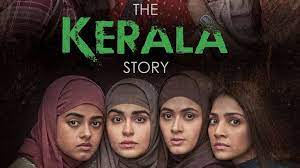More than a story: on the film, The Kerala Story, and the demand that it be banned
False narratives and propaganda should be exposed and countered, but not through a ban
The demand for a ban on The Kerala Story, a film apparently based on the instances of a few women joining the Islamic State, is ill-conceived. It is to the credit of the Supreme Court and the High Courts of Kerala and Madras that they did not yield to the clamour for proscribing the movie. It garnered adverse publicity because of a teaser that made an exaggerated claim that 32,000 girls have gone missing in Kerala, presumably to join the terrorist group. However, the film-makers have agreed to withdraw the teaser and carry a disclaimer that the film’s content is fictional. The film’s more notable feature is that it has been denounced as undisguised propaganda. Those seeking the ban accuse its makers of trying to stoke communal passions and the projecting of a fake narrative against Muslims. However, even if that is true, any ban on the film will be counter-productive. Bans can be overturned by courts, and they tend to evoke curiosity about the film and often end up making more people form opinions on its content. In effect, it enhances the propaganda value, and furthers the ulterior motive, if any. It is now legally settled that once a film has been certified by the statutory authority, there is really no case to ban one. Laws pertaining to public order indeed empower the police and local authorities to stop a film’s screening, but it will be perilous to do so every time a group demands a ban.
Reports from Tamil Nadu and Kerala suggest that threats of protests have resulted in multiplexes and some cinema owners choosing not to screen the film. It is normally the local authorities who have a duty to provide adequate security, as ruled by the Supreme Court. However, rather than the law, it is prudent assessment of the ground situation that helps them make a decision. What is also condemnable is the attempt to make political and electoral capital out of The Kerala Story. The Prime Minister himself has alleged that only those who support terrorism will criticise such a movie. It does not behove high constitutional functionaries to communalise the debate over the film. Protests against an allegedly false narrative about a State or a community will not amount to backing terrorism. The fear that the film purportedly grapples with — that young people may be targeted for radicalisation — should be addressed by isolating extremist elements and fostering better understanding among communities. The mischief wrought by a false projection of reality is best undone through exposing the falsehood and the underlying motive, and not through hasty bans.
